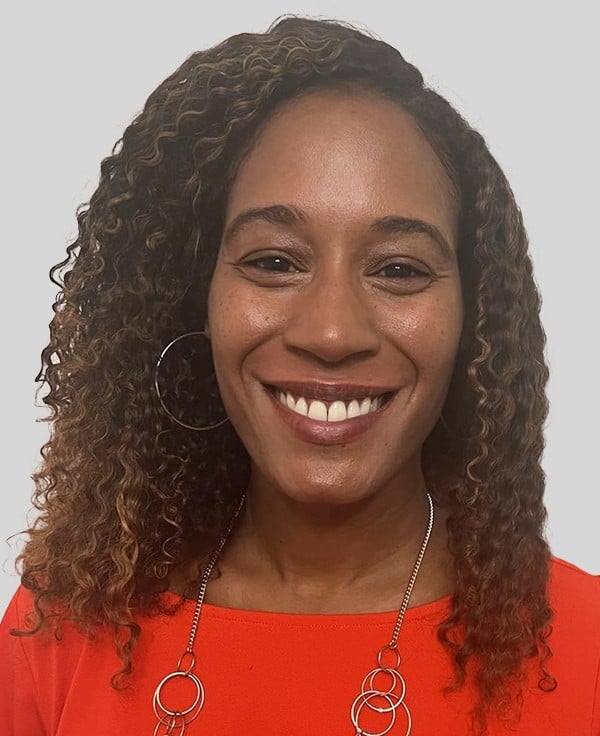

What words or phrases come to mind when you hear the term ‘onboarding’? For too many of us, ‘onboarding’ is synonymous with long lectures, mundane compliance trainings, and an ever-present pressure to get ‘up to speed’ with an organization’s ‘way’ to dive into the work and be a contributing member of the team. Despite years of research connecting this type of onboarding with low retention and productivity, these age-old practices remain. And we have an inkling as to why. With financial constraints and limited capacity, many organizations, despite their best efforts, don’t feel they have the time or capacity to make meaningful shifts to the onboarding process. However, in this challenging market, most of us also cannot afford to squander the substantial financial, time, and energy investments made to attract a new employee. At Promise54, we work with organizations that recognize a need to enhance their onboarding experiences but many are working with limited resources to innovate in this area.
One of the most needed – and transformational – shifts in onboarding is about moving from an approach focused on teaching new hires ‘how we do things around here so that they can effectively assimilate into our way’ to instead sharing critical context, history, and rationale related to current approaches through onboarding. This creates a pathway to building the relational safety and trust necessary for new staff members to effectively integrate the brilliance, skill, and experiences that they bring with them into the organization to help enhance existing approaches where appropriate so that future work represents a new collective best.
While a total overhaul to get there may not feel feasible, a few key mindset shifts can help ensure your onboarding process effectively sets new hires up for success. Below we have outlined three critical mindset shifts an organization can make to enhance the onboarding experience alongside tools and practices from the 54Hub to help put these mindsets into practice.
Current Mindset #1: The first 90 days of onboarding should focus on evaluating a new hire’s potential.
Mindset Shift #1: New hires have already demonstrated their potential through the interview process. The first 90 days should focus on ensuring the new hire has the tools, resources, and organizational context to set them up for success.
Often organizations treat the first 90 days as an extension of the hiring process where new team members need to prove their worth and value to an organization. This can put immense pressure on a new hire to perform, undermining the psychological safety needed to learn and understand the organization’s culture, a new set of systems, and their role. For staff from historically marginalized identities, who often have to combat negative stereotypes related to their ability, experience, and worthiness in the workplace, these impacts can be amplified.
We offer a different frame focused on using the first 90 days to set a new team member up to thrive in their role. Focusing on questions such as “What tools, resources, & connections will the new hire need?”, “What implicit cultural norms do we need to make explicit for the new hire?”, and “What practices can we engage in to ensure the new hire feels safe and welcome to bring their unique perspective, experiences, and ideas to our work?” This shifted approach helps position new hires to establish a strong foundation, develop an informed perspective on the new space they’ve entered, and share their unique brilliance with the organization.
Aligned Practice: Develop a 90-day onboarding plan that makes your organization’s values and cultural practices explicit and creates space for both technical and cultural learning.
Current Mindset #2: Creating space for connection is time-consuming and distracts from getting the work done.
Mindset Shift #2: Creating space for connection, especially across shared lines of identity, is critical to trust-building, psychological safety, and long-term productivity.
When it comes to onboarding, urgency is often an organization’s greatest threat. The pressure to get a new hire ‘up to speed’ is significant, but this mindset can encourage organizations to skip over critical opportunities that will set a new hire up for success in the long run. In their first few weeks, new team members are trying to gauge the cultural norms and expectations of the organization they chose to join. Am I genuinely welcome to be myself and share my ideas, questions, and perspectives? Is this a culture where I can learn and grow? How safe is it to bring various aspects of myself to the workplace? How safe is it to challenge or offer alternatives to the way things are done here? Organizations can help new team members build a strong foundation with their new organization and role by developing an onboarding plan to address these questions in direct, transparent, and clear ways and by creating opportunities to build trusting relationships and psychological safety at the organization.
One way we do this at Promise54 is by assigning each new team member a “buddy” who is a peer in the work, instead of someone who holds positional power over them. We try to assign those buddies based on shared affinity, identity, and/or role. For both of us, as two Black women, this experience was invaluable – having access to other Black women who shared our identity and role and were invested in our development at the organization helped us feel seen and supported in this new environment. It created space to build meaningful relationships at work outside of our day-to-day responsibilities and provided a space to ask questions that we may not yet have felt comfortable asking in a broader training or group conversation.
Aligned Practice: Integrate intentional and explicit opportunities for new hires to make connections and build psychological safety at the organization, with a focus on shared affinity.
Current Mindset #3: Onboarding plans should be completed before a new team member joins the organization.
Mindset Shift #3: Onboarding plans are “living” and as such should evolve and adapt to the needs of the new hire.
It can be tempting to develop and finalize a plan that you can pass off to a new team member, but this type of one-directional onboarding can signal that there is one “right way” to do things and that questions and new ideas are unwelcome. This can be especially true for folx who have experienced identity-based harm in other settings and may exacerbate pressure to assimilate or cover aspects of themselves in professional spaces. Without creating explicit opportunities to invite the new hire’s voice into their learning and development, organizations run the risk of discouraging them from contributing their unique perspective and ideas, often the exact reasons why they were hired to begin with!
Another approach is to develop onboarding plans that are living documents, offering new hires a strong start at the outset and from there, inviting both the new hire and their manager to collaborate on their evolution over time. This provides new hires an opportunity to bring their ideas into the conversation and helps to ensure that they can play an active role in their experience.
Aligned Practice: Consider existing 1×1 check-ins, or separate touchpoints with a team member who manages the onboarding process (like a Talent team representative) to integrate intentional time for feedback and updates to the onboarding plan. Use this time to ask how things are going, check in on progress, answer questions, and make adjustments to the onboarding plan as needed over time.
So, here’s our challenge to you – take a look at current personal and organizational mindsets around onboarding and, if any of those that we’ve highlighted resonate, commit to changing them for your next new hire’s onboarding experience.
We have seen time and again how by embracing these simple yet powerful mindset shifts, an organization can make impactful changes to its onboarding experience and increase the likelihood that a new team member will become and remain a contributing member of the organization. Looking for support? Promise54 is here to help.
JODI HARRIS
Associate Partner
She/Her/Hers
Jodi is: a native Californian, former New Yorker and current resident of Atlanta, GA; an avid traveler, trail walker and passionate beach lover; a devoted daughter, sister, dog mom and friend; a passionate social justice advocate; a plant collector and lover of the outdoors; and a Black, cisgender, heterosexual woman fighting to uplift the voices and ignite the power of those most often excluded. Jodi brings over 10 years’ experience in the education sector, including at Acelero Learning as a Grants Manager, Director of Systems & Strategic Initiatives, and Vice President of Diversity, Equity, Inclusion & Belonging. Jodi’s commitment to relationship building and human-centered work opens the door to the realignment of old paradigms and design of new approaches to advance towards a more equitable and just world where we all belong. Jodi holds a BA in Political Science from Stanford University, as well as certifications in Change Management from Prosci® and Diversity, Equity and Inclusion from Georgetown University.
Contact Jodi: jodi@promise54.org
SHERESE WOOLARD
Senior Associate
She/Her/Hers
Sherese is: a fat, Black, queer woman; devoted sister, daughter and friend; inquisitive listener; mental health advocate; personality typology nerd; self-development aficionado; and on a mission to create a more inclusive world by empowering herself and others to live into their most authentic selves. Hailing from the suburbs of Detroit, MI, she is a natural bridge-builder and is passionate about leveraging intersectionality to spur both empathy and accountability in individuals and communities.
Sherese began her career as a Teach for America corps member in Memphis, TN. Over her 10+ years in education she has served within organizations such as KIPP, YES Prep Schools & EMERGE with a focus on student achievement, adult development, DEI values integration and talent system enhancement. In her spare time, she loves to travel to new places, re-watch movies she has already seen many times, and try all the best restaurants in her current city of Houston, TX. Sherese holds a BS in Human & Organizational Development from Vanderbilt University.
Contact Sherese: sherese@promise54.org
